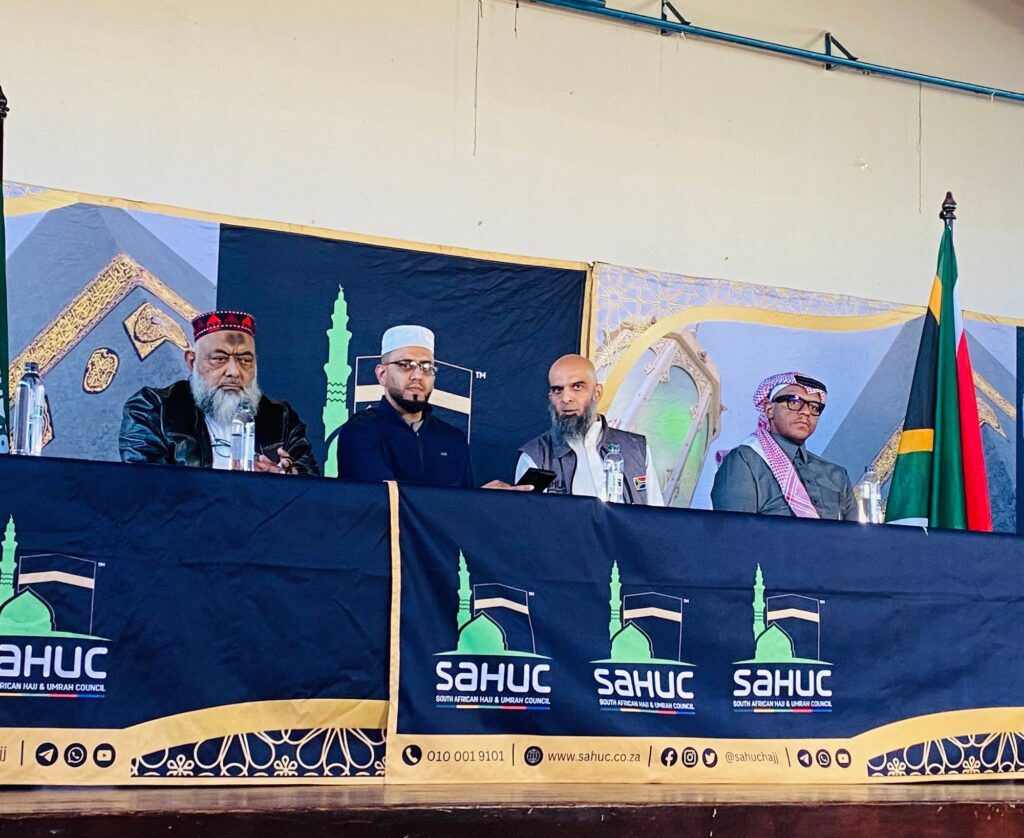
Assalamu Alaikum Warahmatullahi Wabarakatuh,
On behalf of the Muslim Judicial Council (MJC), and in our capacity as a member of the SAHUC National General Council, we wish to first commend SAHUC and the Hajj operators who, over decades, have faithfully served the South African hujjaaj with dedication, professionalism, and sincerity. Their efforts, often under difficult circumstances, have ensured that generations of pilgrims were able to fulfil this sacred obligation with dignity and comfort. We recognise and appreciate this contribution as part of the legacy of service to our community.
It is precisely because of our deep concern for the welfare of the hujjaaj that we write to you regarding the proposed amendment to the SAHUC constitution, which would see SAHUC transition from its current role as regulator to becoming the sole Hajj operator.
While we respect the right of any organisation to amend its constitution, this shift represents a fundamental change in mandate with far-reaching repercussions for both the organisation and the broader community.
Already, we have witnessed the unfortunate fitna and division this proposal has sparked within our community, with legal battles, political parties, and government entities becoming involved. This is deeply concerning, as it detracts from our shared mission of serving the hujjaaj in unity and sincerity.
As members of the NGC, we carry a fiduciary duty to make fully informed decisions in the best interests of the pilgrims. We must also remind ourselves that members of the NGC could be held legally accountable for decisions taken without having fully understood their implications, especially where such decisions may result in harm or disadvantage to the hujjaaj. This is why transparency, clarity, and proper briefing are not only ethical requirements but also legal safeguards for all involved.
Several critical questions remain unanswered:
• What is the clear and compelling rationale for SAHUC becoming an operator, when alternative arrangements have reportedly been afforded by the Kingdom of Saudi Arabia?
• What are the long-term objectives of such a structural shift, and how does it align with SAHUC’s founding mandate?
• Has SAHUC realistically assessed its capacity to fulfil the operational demands of serving thousands of pilgrims annually?
• How will SAHUC ensure it caters to the diverse needs of hujjaaj, many of whom desire bespoke Hajj experiences?
• What safeguards will be put in place to ensure SAHUC does not become a monopoly, and who will exercise oversight if SAHUC assumes both regulatory and operational functions?
• Why has there been limited consultation with the broader Hajj industry and other stakeholders whose voices are essential in shaping such a major transition?
Until these questions are addressed through a proper briefing and consultation process, we are of the firm view that it would be premature and irresponsible to proceed with a vote on this matter. We therefore propose:
1. That the vote on this constitutional amendment be postponed until such time as the NGC is fully briefed and our concerns are addressed.
2) That a task team be established under the mandate of SAHUC to engage with all relevant stakeholders— including Hajj operators, industry experts, and community representatives—in order to draft a comprehensive proposal that balances the interests of the hujjaaj, SAHUC, and the industry. The recommendations of this task team can then be presented to the NGC for consideration and approval.
3. The payment of the Hajj fees due to the Ministry of Hajj and Umrah in Saudi Arabia should (have been) affected by the deadline date of 23 August 2025, thereby ensuring compliance with Saudi requirements and safeguarding the interests of South African pilgrims.
Finally, we wish to place on record our strongest disapproval of those individuals or organisations who have chosen to undermine the standing of SAHUC through divisive actions, whether by resorting to legal measures, political lobbying, or direct appeals to foreign authorities. While disagreements may exist, our accountability before Allah (SWT) compels us to act with wisdom, unity, and a steadfast commitment to the hujjaaj, whose rights and dignity must always remain above personal interests or egos.


